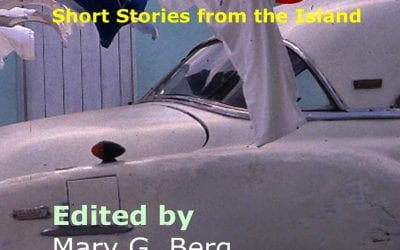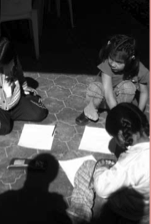Invasion
A Rocinha Day in the Life
I woke up to the sounds of helicopters and firecrackers. Having tossed and turned throughout the morning, my first sense was that I was dreaming, but when my roommate rolled over and asked, “Did you hear that?” the unfortunate reality set in. The sounds are bad omens in favelas, the hillside urban squatter communities made infamous outside of Brazil by the Oscar-winning film Cidade de Deus (City of God). In Rio de Janeiro, the percentage of the population living in favelas is approximately 25-40% in a metropolitan area of 13 million. The majority of Rio’s 700-plus favelas, ruled by one of the three criminal factions controlling the lucrative drug trade, are in constant conflict with each other and the police. Hence the helicopters and firecrackers.
The helicopters belonged to the cops, usually the polícia militar, or military police—a holdover from the country’s military dictatorship. They are soldiers as much as policemen, and it is not an understatement to characterize the conflict raging in Rio’s favelas as warfare. That morning in early August, more than 300 men took part in a 6-hour temporary takeover that began with a simultaneous invasion of all of Rocinha’s main entrances. Logistical support was provided via laptops equipped with satellite imagery, abetted by the helicopters’ bird’s eye view.
In response to the high-tech surveillance was a low-tech signal: firecrackers. Residents set them off as a warning to the community while the police continued their incursion into Rocinha, the largest favela in Rio, Brazil, and by some accounts all of Latin America, attempting to conquer it in three-dimensional space, both on the ground and from the air. The dense layer of becos (alleyways) was proving to be a strong defense against the the “mega-operação” (mega-operation). At the sound of the firecrackers, anyone involved with the drug trade scatters up the hill, away from the paved avenues that allow the police easy access. The highest point in Rocinha, where the dono do morro (chief of the local cartel) lives, only has one way in and out, I was told. It was a dare to the police: try to reach us up here and blood will be shed. The police did not go, and no shots were fired.
But that didn’t stop the police from making arrests. Five in total, I read in the newspaper the next day, including one Betinho da Cachopa (Little Robert from Cachopa). I lived in the area of Cachopa and wondered if Betinho was caught in the same house-to-house searches I witnessed. As the muffled sounds echoed from outside after I awoke, I began packing my bags—this was the day, of all coincidences, that my parents were arriving in Rio for a visit. I exited the door of my apartment, which led to an open-air staircase, and went up to the family’s rooms. As I ascended, I saw a battalion of police marching down our street. I asked Dona Josirene, the matriarch of the family with whom I and another volunteer from the Two Brothers Foundation were staying, what was going on. She told me not to worry, that she and her family were good, honest people and that God would assure our safety (they were devout Pentecostalists, the evangelical Protestant denomination that has become immensely popular in the poor communities of Latin America and Africa in recent decades).
I returned to my bedroom and my roommate began making breakfast, only to be interrupted by shouts of “Abre a portão[open the front door]!” My roommate came out and froze, unsure if he should open the gated door that separated our building from the street. Dona Josirene was nowhere to be seen, so he apologized to the police and told them, in his broken Portuguese, that he doesn’t speak the language well. When she finally arrived and gave her assent, the police entered, their suspicions aroused. After a cursory search and Dona Josirene’s explanation that we were Americans volunteers with an NGO, they calmed down. “Where are you from?” the captain asked, and a conversation in Portuguese ensued. “I’m from Washington, D.C. and my roommate is from San Francisco.” He perked up. “Ahh, San Francisco! I know it well. I love California.” Seizing on the positive opportunity, I asked, “I need to leave Rocinha today, is everything ok?” He brushed it off, “Of course, we have it under control.” They continued on their way and I had Dona Josirene help me out of Cachopa.
The Estrada da Gávea, Rocinha’s main drag, was calmer than usual, but far from deserted. Still, Dona Josirene felt it important to point out the bullet holes in the wall at the end of our alley, reminders of a previous visit from Rio’s “finest.” As the taxi made its way out of Rocinha, we passed a squad armed with sniper rifles and binoculars, squinting up the hill. At the entrance, we yielded to yet another flotilla of armored cars racing in. But for all the reinforcements, when I returned to Rocinha less than twelve hours later, the police gone since early afternoon, it was back to usual: members of the Amigos de Amigos (ADA) gang who rule Rocinha were walking freely through the streets, assault rifles in hand, and at the corner boca-de-fuma (mouth of smoke) the open air drug market continued unabated. For all the morning’s bluster, it was like nothing had ever happened.
Winter 2008, Volume VII, Number 2
Greg Scruggs is a senior in Literature, writing his thesis on the role of favelas in Rio de Janeiro. He lived in the favela of Rocinha and worked with the Two Brothers Foundation (www.2bros.org) thanks to a DRCLAS summer research grant. He wrote about the day Rocinha got invaded and many other adventures in his blog, beatdiaspora.blogspot.com, a commentary on the interaction of audio and urban spaces.
Related Articles
Salvadoran Youth, Transnationalism’s Other Product
English + Español
A completely distraught junior high school teacher in the Washington DC area approached her assistant principal—a highly-educated white middle-class man—one morning for urgent…
Cuba on the Edge: Short Stories from the Island
If you want to read contemporary Cuban fiction and do not have access to the Spanish original, an increasing number of excellent translations will now allow you to become acquainted with…
Making A Difference: Literacy in Calca
Seated on the floor of their school house twenty attentive first grade eyes watch as Martha turns the pages and asks aloud about the fate of David a friendly llama…





